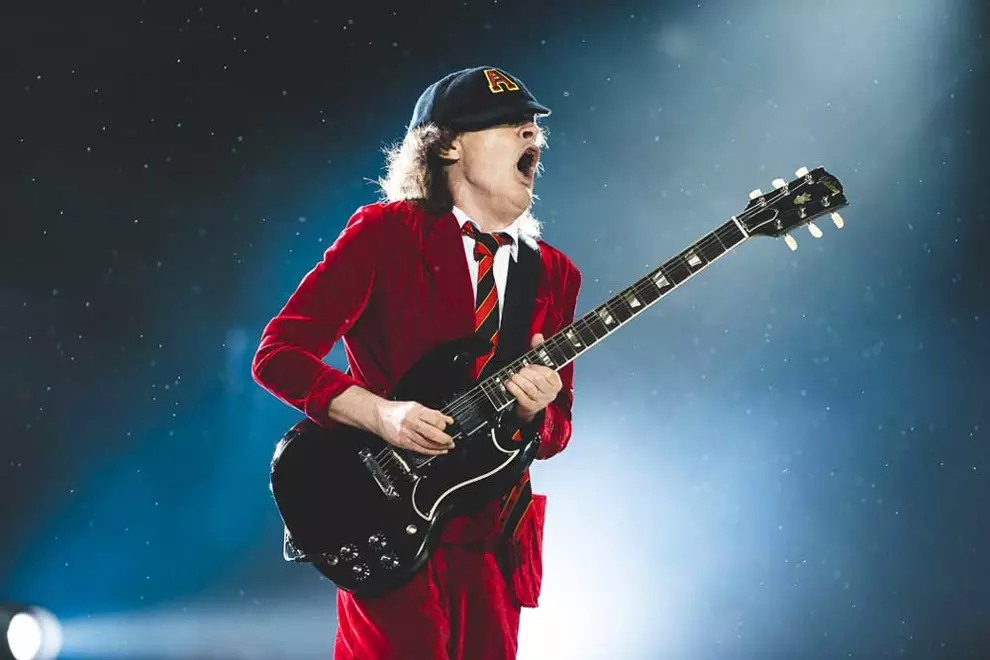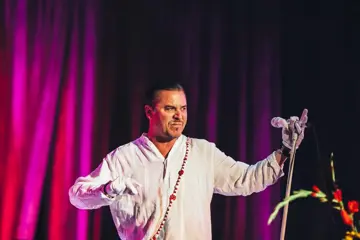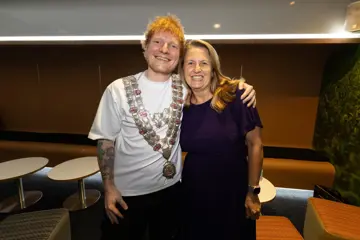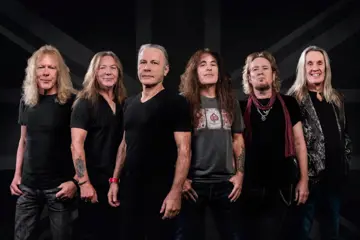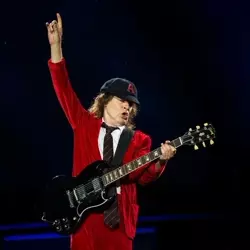 AC/DC
AC/DCIt was AC/DC’s biggest gig to date – playing at Australia’s major festival.
But it didn’t happen.
This is the story of the onstage brawl that shaped the future of Australia’s greatest rock band.
The final Sunbury Festival – 50 years ago this week – should have been a smash hit, with a killer local line-up, including AC/DC, Skyhooks, Sherbet, Daddy Cool, Jim Keays, Billy Thorpe, The Dingoes, Captain Matchbox, The Keystone Angels, Kush and Renée Geyer.
But the event was a template for future festival fiascos, with an overpaid international act, bad weather and high ticket prices.
A three-day ticket to the first Sunbury in 1972 was $6. A ticket to Sunbury ’75 cost $20.
Despite Queen’s disastrous appearance at Sunbury ’74, the organisers still believed the event needed an international drawcard. After discussions with the Eagles, they settled on Deep Purple.
The British band released their ninth album, Stormbringer, to coincide with the gig.
The title proved to be prophetic.
After heavy rain, Sunbury ’75 was dubbed “Mudbury” and “Rainbury”. Juke called the event a “shit fight in the mud”.
“A few hours of rain on the Saturday had meant the difference between success and failure,” Peter Evans writes in his book Sunbury, Australia’s Greatest Rock Festival.
But it was Deep Purple’s appearance that provided the festival’s biggest drama.
Don't miss a beat with our FREE daily newsletter
Bon Scott’s biographer Clinton Walker says Angus Young was particularly incensed when the band arrived at the Sunbury site to discover that Deep Purple had their own caravans backstage, while there was only one van for the local acts.
AC/DC were yet to release their first album, but Sunbury showed they were a band not to be messed with.
After Deep Purple’s 11 pm set on the Saturday night, their roadies started packing up the stage. Because of the British band’s huge set-up, AC/DC’s manager, Michael Browning, believed his band wouldn’t get to play until about 4 am.
“Deep Purple’s road crew thought they were running the show,” Browning recalled in his autobiography Dog Eat Dog. He wasn’t impressed, telling AC/DC’s roadie, Ralph, to “set up our gear and ignore those bastards”.
And then all hell broke loose.
“Don’t fuck with me,” Deep Purple’s stage manager told Browning. “I’m from the Bronx.”
George Young – who was planning to play bass with his younger brothers – stepped in. “Are you now?” he snapped. “Well, I’m from Glasgow.”
It was obvious that The Easybeats legend was not going to take a backward step. Legend has it that he threw the first punch. Browning also traded blows with Deep Purple’s manager, Bruce Payne.
It had been a long day for the Sunbury crowd, but as they nursed their festival-branded Courage beers, they looked on incredulously as they witnessed an all-in brawl in the middle of the stage.
The upshot was AC/DC exited the stage and jumped in their tour van – without playing a note.
The following morning, the apologetic organisers called Browning and suggested that AC/DC could play that night. The manager told them to stick it.
The incident was a turning point for the band. “It turned out to be a career-changing lesson,” Browning says. “I believed then, and I still do now, that it was a pivotal moment for us. This conflict and punch-up was the catalyst for getting the band out of Australia as soon as possible.
“Sunbury’s promoters, producers and security were all subservient to the big-shot international artists – who were behaving badly – rather than doing the right thing and letting an Australian band carry out their performance in accordance with their contract.
“We all knew from that moment on that if you wanted respect in Australia, first you had to make it overseas. Homegrown acts just didn’t get the same respect as the overseas stars.”
Billy Thorpe also cited the Deep Purple debacle as a reason he relocated to America.
And Thorpie was unimpressed with the British band importing 14,000 watts of additional PA – no one was going to take his title of being the loudest act in the world, especially not on his home turf of Sunbury.
“We hired every piece of equipment in Melbourne,” Thorpie told author Murray Engleheart. “It was the loudest fucker! So, you c*nts think you’re loud, do you? Right!”
The previous Sunbury had been a disaster for Skyhooks. Their make-up melted in the afternoon sun, and singer Steve Hill quit after seeing footage of the band’s performance on TV. “Sunbury was just fucking woeful, an unmitigated disaster,” Hill later told me.
But a year later, the Hooks, with Shirley Strachan, were the hottest band in the land, following the release of their debut album, Living In The 70’s. Their Sunbury set was a triumph, with the Rolling Stone review calling them “the explosion point of Sunbury ’75”.
Strachan didn’t even mind being pelted with mud, telling the crowd: “I’d just like to say two things: one is that a bit of mud doesn’t hurt me. And the other is my dry cleaning is tax deductible.”
Skyhooks showed that Sunbury didn’t need an international headliner. Peter Evans believes that “although Deep Purple gave a strong and competent performance, it seems unlikely that they were the huge drawcard they were expected to be, with the best of Australian bands equally popular with the crowd. By 1975, ‘our’ bands were still what the average punter wanted to experience.”
But Deep Purple were paid $60,000 upfront, while Skyhooks didn’t receive a cent. They were meant to get $3000, but the Sunbury organisers, Odessa Promotions, went into liquidation after the event.
The promoters also had to pay for Deep Purple’s gear to be transported from the UK – at a reported cost of $110,000.
It was the final Sunbury.
Evans was the lighting director for the first three Sunbury Festivals, and attended the 1975 event as a guest of the organisers. He says it was a sad end to the era of “peace, love and brown rice”, but believes the festival was the beginning of the modern Australian music industry.
“There was now an identifiable Australian ‘sound’ and a thriving live performance scene. Bands were selling albums like never before and new Australian record labels and recording studios had sprung up to give them a voice.
“After Sunbury, Australian music had changed forever.”
And the Aussie acts who didn’t get paid for playing at Sunbury ’75? Well, each musician ended up receiving $30.
When it was announced that Deep Purple planned to return to Australia at the end of 1975, the Musicians Union argued that their visit could lead to “considerable unrest”. The band agreed to pay money into a fund so the Aussie Sunbury acts could be paid.
In 2011, Deep Purple singer David Coverdale revealed he was unaware that AC/DC was the local band involved in the punch-up. “Apparently, a young Aussie band had jumped onstage, plugged into our gear and started playing,” Coverdale told journalist Andrew Tijs. “Well, all hell broke loose, from what I was told. Our roadies – big buggers to a man – wrestled with the young band to get them off our equipment and off the stage.
“Chaos and frolics ensued.”
AC/DC never got to play at the biggest Aussie festival of the ’70s.
“To kill at Sunbury was to create a buzz that could transform your fortunes,” AC/DC biographer Mick Wall explained. “If things went well, 1975 would be the year AC/DC became the band everybody talked about for weeks and months afterwards.”
AC/DC didn’t kill at Sunbury ’75. And their next gig was a tiny affair at the Sorrento RSL. But 50 years later, we’re still talking about them.

